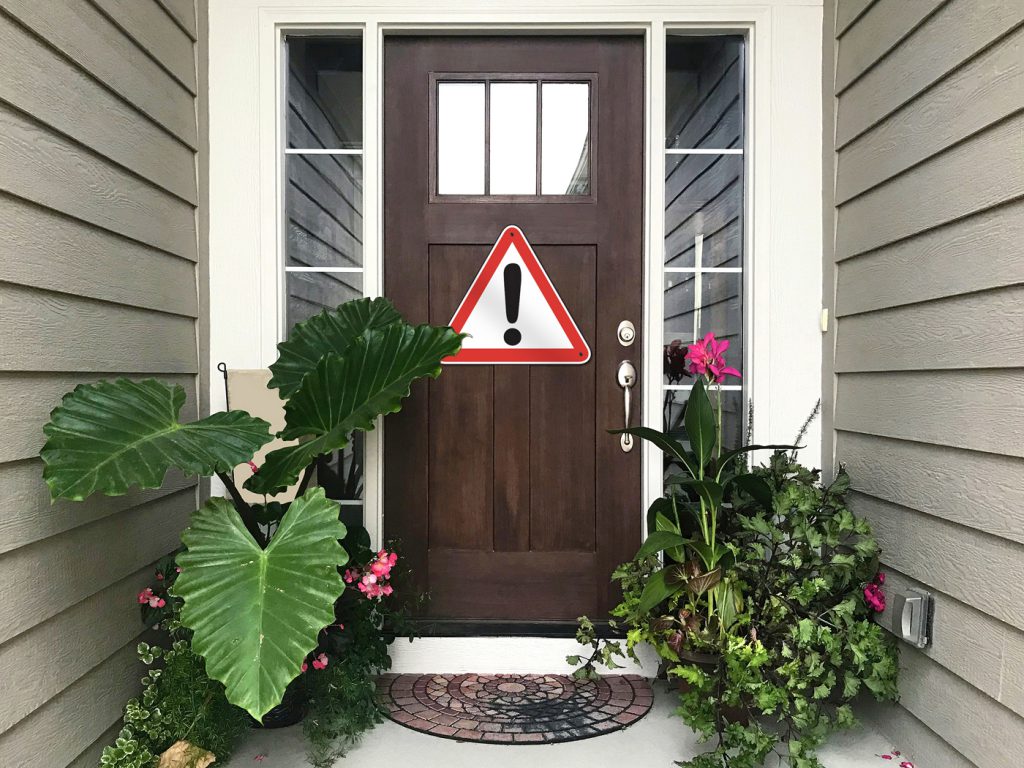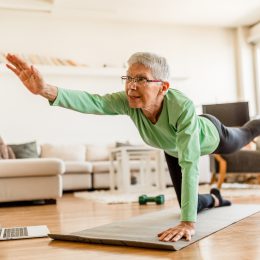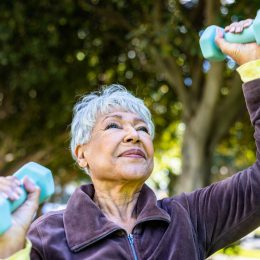5 Hidden Dangers in Your House
Make your home the comfortable safe haven it should be by protecting yourself against these stealthy hazards.

Home is where the heart is, but it’s also where many health dangers dwell.
We’re not talking about the better-known hazards, like mold, dust mites, or carpet chemicals. Those are certainly important, but there are a few even sneakier ways your home may be putting your health at risk. And since adults over 65 spend more time sleeping, watching TV, and doing household activities, it’s especially important to beware.
Make your home the comfortable safe haven it should be by protecting yourself against these five common risks.
1. A Slippery Shower or Step Stool
“Falls are one of the biggest threats to the independence of adults as they age,” says Kathryn H. Jacobsen, Ph.D., M.P.H., a professor in the department of global and community health at George Mason University.
In fact, one out of five older adults who fall incurs a serious injury such as a broken hip or head trauma, according to the Centers for Disease Control and Prevention.
“Showers and kitchens with step stools—for reaching those higher cabinets and shelves—are major points of concern,” Jacobsen says.
How to stay safe: Install permanent grab bars in and around the shower and tub. Some models have suction cups, which make them easy to install and remove so you can take them with you when you travel. Nonslip stickers are another good way to keep everyone in your home from slipping in the shower.
As for the kitchen, reorganize so that your most used foods and tools are on lower shelves, Jacobsen says.
For more tips, check out this guide to preventing falls at home.
2. Your Kitchen Sink and Countertops
The National Sanitation Foundation found that areas where food is stored or prepared had more bacteria or fecal contamination than other places in the home. More than 75 percent of dish sponges and rags had salmonella, E. coli, or fecal matter. Compare that to 9 percent on bathroom faucet handles.
That’s especially bad news for older adults. “Your immune system starts to weaken in your 50s, which puts you at an increased risk for foodborne illnesses,” says Philip Tierno, Ph.D., a professor of microbiology and pathology at New York University.
Other kitchen items that need frequent cleaning include cutting boards and your refrigerator, especially areas in contact with uncooked or unwashed food.
How to stay safe: If you’re washing food over the sink, make sure it never touches the actual sink or the drain, which tend to be hot spots for bacteria, Tierno says.
Also, make sure to change dish towels a few times per week, and swap your sponge every month or so depending on how much you use it, he says. If you’re a regular sponge user, disinfect it at least once a week by soaking in a bleach solution (one part bleach to nine parts water) for five minutes, or microwaving on high for two minutes. The microwave method has been shown to kill 99 percent of bacteria!
And while you’ve heard this one before, it’s worth repeating: Before and after handling food, wash your hands with soap and water for at least 20 seconds. Plus, check out tips for washing produce correctly.
3. Herbal Supplements
You might not think to tell your doctor about that daily multivitamin or your green tea habit, but that’s a mistake.
“Some herbal products mix badly with prescription medications,” Jacobsen says.
In fact, a review published in the British Journal of Clinical Pharmacology found herbal remedies such as sage, St. John’s wort, goji juice, green tea, and ginkgo biloba produced adverse reactions in people taking warfarin or statins.
How to stay safe: Tell your doctor about any over-the-counter medications, vitamins, or supplements you’re taking. And cozy up to your pharmacist too.
“Pharmacists can offer good advice about whether it’s safe to try supplements or if they should be avoided because of possible side effects or interactions,” Jacobsen says.
The National Center for Complementary and Integrative Health offers a list of common herb-drug interactions for reference, but it should remain just that—a reference. It shouldn’t replace a conversation with your doctor.
Subscribe to our newsletter
It's quick and easy. You could be one of the 13 million people who are eligible.
Already a member? Click to discover our 15,000+ participating locations.
Follow Us
4. Your Showerhead
As you get older, because of that slight weakening of the immune system, you’re more susceptible to Legionnaires’ disease, a type of pneumonia caused by the legionella bacteria, which grows in showerheads, Tierno says.
“Over time, if a showerhead is not cleaned, legionella and other bacteria can grow and thrive,” he says. “So when you spray yourself, you can get sick.”
How to stay safe: Change the showerhead at least once a year to prevent mineral deposits and biofilm. Between changes, clean it by scrubbing any visible debris off the head (Tierno recommends using a steel brush) and soaking it in vinegar, a natural disinfectant, for one hour.
If you’re replacing the head, choose a metal model over plastic. Research shows metal is less likely to harbor bacteria.
5. Empty Rooms
“Research shows that lonely and socially isolated people tend to be less healthy and more likely to have a lifestyle that is not as health-promoting,” says Christopher Coe, Ph.D., director of the Harlow Center for Biological Psychology at the University of Wisconsin-Madison.
Studies have linked loneliness and social isolation to increased risk for cognitive decline, depression, and even heart disease.
That’s bad news, given that the AARP Foundation estimates more than 8 million adults age 50 and older are affected by isolation.
How to stay connected: Just as you can take steps to improve your fitness, there are things you can do to improve your connections with others. Signing up for a SilverSneakers class accomplishes both—and members say the friendship benefits are just as important as the fitness benefits.
Or volunteer, which provides both a dose of social interaction and gratitude. One Florida State University study found that just two hours of volunteering per week alleviated loneliness in older adults who were widowed. Check out local volunteer organizations or a site like volunteermatch.org to find opportunities.
Want more ideas? Read our guide on how to reconnect when you’re feeling isolated.
Get More Tips for Healthier Living
- Turn Yardwork into a Total-Body Workout
- 4 Health Hacks for Older Adults
- Breathe This Way to Protect Your Back




